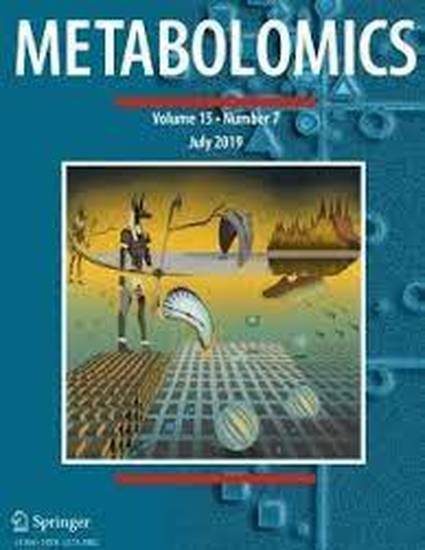
Article
Targeted metabolomics highlights perturbed metabolism in the brain of autism spectrum disorder sufferers.
Metabolomics
(2020)
Abstract
Introduction: Autism spectrum disorder (ASD) is a group of neurodevelopmental disorders characterized by deficiencies in social interactions and communication, combined with restricted and repetitive behavioral issues.
Objectives: As little is known about the etiopathophysiology of ASD and early diagnosis is relatively subjective, we aim to employ a targeted, fully quantitative metabolomics approach to biochemically profile post-mortem human brain with the overall goal of identifying metabolic pathways that may have been perturbed as a result of the disease while uncovering potential central diagnostic biomarkers.
Methods: Using a combination of 1H NMR and DI/LC-MS/MS we quantitatively profiled the metabolome of the posterolateral cerebellum from post-mortem human brain harvested from people who suffered with ASD (n = 11) and compared them with age-matched controls (n = 10).
Results: We accurately identified and quantified 203 metabolites in post-mortem brain extracts and performed a metabolite set enrichment analyses identifying 3 metabolic pathways as significantly perturbed (p < 0.05). These include Pyrimidine, Ubiquinone and Vitamin K metabolism. Further, using a variety of machine-based learning algorithms, we identified a panel of central biomarkers (9-hexadecenoylcarnitine (C16:1) and the phosphatidylcholine PC ae C36:1) capable of discriminating between ASD and controls with an AUC = 0.855 with a sensitivity and specificity equal to 0.80 and 0.818, respectively.
Conclusion: For the first time, we report the use of a multi-platform metabolomics approach to biochemically profile brain from people with ASD and report several metabolic pathways which are perturbed in the diseased brain of ASD sufferers. Further, we identified a panel of biomarkers capable of distinguishing ASD from control brains. We believe that these central biomarkers may be useful for diagnosing ASD in more accessible biomatrices.
Keywords
- Autism spectrum disorder,
- Biochemical pathways,
- Biomarkers,
- Brain,
- Machine learning,
- Metabolomics
Disciplines
Publication Date
April 24, 2020
DOI
10.1007/S11306-020-01685-Z
Citation Information
Graham SF, Turkoglu O, Yilmaz A, Ustun I, Ugur Z, Bjorndhal T, Han B, Mandal R, Wishart D, Bahado-Singh RO. Targeted metabolomics highlights perturbed metabolism in the brain of autism spectrum disorder sufferers. Metabolomics. 2020 Apr 24;16(5):59. doi: 10.1007/s11306-020-01685-z. PMID: 32333121.
